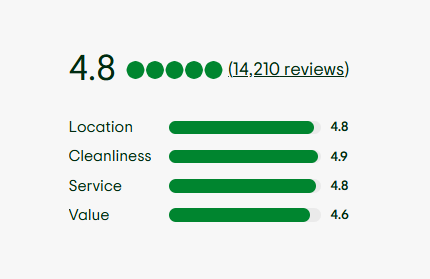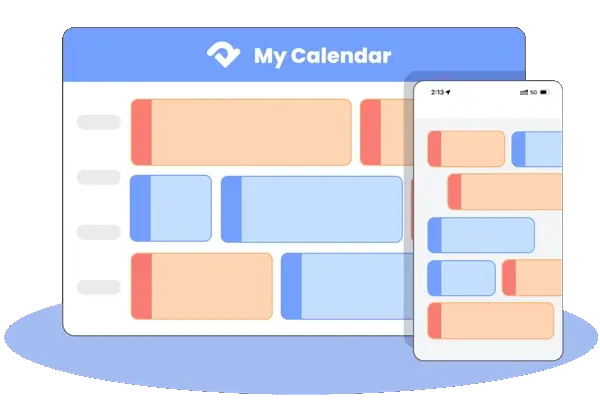TripAdvisor ranking can decide whether travelers see your hotel first or never find it at all. With almost half a billion people browsing the site every month, even a small jump in rank leads to more clicks, more trust, and higher revenue. Below is a practical playbook that any owner or manager can start using today.
Why the Ranking Matters
Most travelers start their search with Google. When they type “best hotel in Ubud” or “cheap B&B near Edinburgh Castle,” Tripadvisor pages sit near the top of those results. The higher your property sits on Tripadvisor itself, the more likely it is to earn the click. A Cornell study found that a one-point lift in user rating on major review sites correlates with an 11 % rise in average daily rate. That same lift pushes occupancy up 6 %. Numbers like that make the ranking worth real money.
What Really Moves the Needle on Your Ranking
Tripadvisor uses something called the Popularity Index to decide where you stand. It’s not just about stars—though stars help. Let’s break down what this index cares about most.
- The average bubble rating (quality):It’s not just about getting 5-star ratings. The words in the reviews matter too. If guests repeatedly mention “clean rooms,” “friendly staff,” or “great location,” that tells Tripadvisor your property delivers consistent good experiences. A property with mostly 4-star reviews but detailed positive comments can outrank one with 5 stars but vague feedback.
- The total number of reviews (quantity): More reviews show that your property is a proven choice. A new B&B with 10 glowing reviews might rank lower than a similar one with 50 solid reviews, even if the average star rating is the same. Travelers trust properties with more feedback—they see it as a safer bet.
- The age of those reviews (recency): A review from 6 months ago matters more than one from 3 years ago. Why? Because travelers want to know what your property is like now. If you haven’t gotten new reviews in months, Tripadvisor might think your service has slipped, even if your old reviews are great.
- Local competition comparison (relevance): You’re not competing with properties across the country—just those in your area, similar in type (like B&Bs vs. luxury hotels). If a nearby property starts getting more positive reviews, your ranking might drop, even if nothing changed at your place.
- User sorting preferences (context): “Best Value” (the default) mixes reviews with pricing and user preferences, so a property with slightly lower stars but better prices might rank higher here. “Traveller Ranked” sticks closer to the Popularity Index, so nailing that index is key for this filter.
6 Strategies to Improve Your Tripadvisor Ranking
Keep Your Profile Fresh and Detailed
Your Tripadvisor profile is your first chance to make an impression—so don’t skimp on it.
- Start with photos: upload high-resolution shots of every room (showing natural light, not just staged setups), common areas like lobbies or gardens, and even little touches like breakfast spreads or welcome snacks. Travelers spend 30% more time on profiles with 10+ photos, and they’re more likely to book.
- Update your info regularly. Double-check that your address, phone number, and website link work—broken links make travelers doubt your professionalism. Your description should tell a story, not just list amenities. Instead of “We have free Wi-Fi,” try “Guests love our fast, free Wi-Fi—perfect for planning your day or sharing photos of your trip.” Highlight what makes you unique, whether it’s a family-run vibe or a location steps from a popular landmark.
Earn Real, Positive Reviews (The Right Way)
Great reviews start with great stays. Focus on the little things that stick in guests’ minds: remembering a repeat guest’s name, offering a local tip for dinner, or fixing a problem (like a noisy AC) before they have to ask. Happy guests are 5 times more likely to leave a review than unhappy ones.
When it comes to asking for reviews, timing is everything. Wait 2–3 days after checkout—long enough for guests to settle back in, but not so long they’ve forgotten their stay. Send a short, friendly email: “We hope you enjoyed your time with us! If you have a minute, sharing your experience on Tripadvisor helps other travelers find great stays too. Thanks for being part of our story.” Use your property management system to automate these emails—consistency counts.
Never offer discounts or freebies for positive reviews. Tripadvisor bans this, and travelers can spot fake praise easily. It’s better to have 100 honest 4-star reviews than 50 fake 5-stars.
Talk to Your Guests—Even After They Leave
Every review deserves a reply.
- For positive reviews, keep it warm and personal: “So glad you loved the homemade cookies—we bake them fresh every morning! Looking forward to having you back soon.” This makes guests feel valued, and it shows future travelers you care about feedback.
- Negative reviews need extra care. Don’t get defensive. Start by apologizing: “We’re sorry your stay didn’t meet your expectations—that’s not what we want for our guests.” Then explain what you’re doing to fix the issue: “We’ve talked to our housekeeping team to ensure rooms are checked more thoroughly, and we’d love to make it right if you give us another chance.” 85% of travelers say a good response to a negative review makes them more likely to book, so this isn’t just about fixing the past—it’s about winning future guests.
Keep Reviews Coming in Regularly
Older reviews lose their punch over time, so aim for a steady stream of new ones. Even if you had a great year of reviews two years ago, Tripadvisor’s algorithm cares more about what guests are saying now.
Make reviewing easy. You can put a simple QR code in guest rooms or on checkout receipts that links directly to your Tripadvisor review page. Add a note: “Scan here to share your thoughts in 30 seconds.” For guests who prefer emails, include a direct link in your post-stay message—no extra clicks needed.
Learn from Your Neighbors
Check top-ranked properties in your area each week. What are their guests raving about? Maybe it’s a free airport shuttle, late checkout, or a pet-friendly policy. If multiple reviews mention a “fantastic breakfast,” think about how you can step up your morning offerings—add local specialties or more vegan options, for example.
Don’t copy—improve. If a competitor is praised for “quick check-ins,” make yours even faster with contactless check-in via a mobile app. Use their strengths as a starting point to find your own edge.
Make Every Part of the Stay Smooth
A guest’s experience starts long before they walk through your door.
- Make booking easy: your website should load fast, and the booking process should take less than 3 minutes (no hidden fees—travelers hate those).
- Send a pre-arrival email 3 days before check-in with details: parking info, check-in time, and a friendly note like, “The weather here will be sunny—don’t forget your sunscreen!”
- During their stay, stay connected but not intrusive. A quick text the morning after arrival: “Everything okay with your room? Let us know if you need anything” shows you’re attentive.
- At checkout, ask if they need help with luggage or directions—small acts that make a big impression.
Wrapping Up
Elevating your Tripadvisor ranking boils down to consistent execution on core principles. Focus on great service, keep your profile sharp, and engage with guests honestly. Over time, those small steps will push your ranking up, bring in more bookings, and turn first-time visitors into regulars.
Remember, travelers don’t just book a room—they book an experience. Make yours one they’ll be eager to share.

